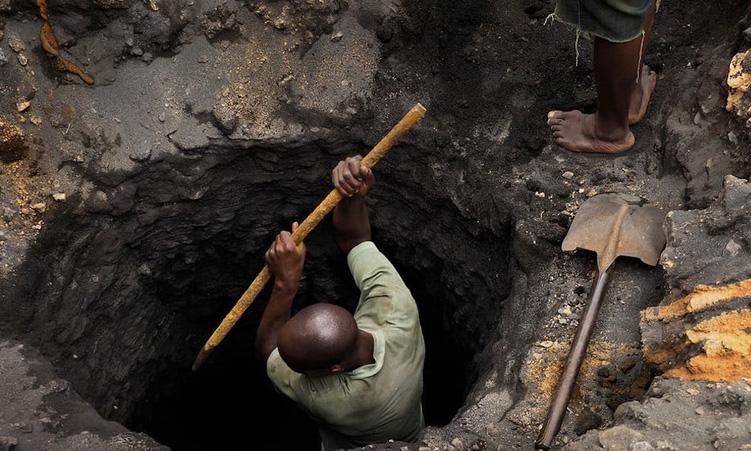THE controversial issue of political affiliation and the divisive ramifications of this lack of independence on the part of the National Union of Namibian Workers (NUNW) served to promote what was termed by the National Society for Human Rights (NSHR) as a “theatre of bitter infighting” at the union congress over the past weekend.
Power struggles rather than incisive discussion of labour-related issues and the economy dominated the agenda of the congress, which some have described quite simply as “a farce”. New NUNW President Alpheus Muheua’s statement at the conclusion of the congress that “workers are more united than ever before” could hardly be further from the truth under the circumstances.Several analysts have said that the gathering was little more than a positioning exercise for the forthcoming Swapo congress next year, and it is therefore clear from this that workers’ rights and responsibilities, and the state of Namibia’s economy as a whole, have clearly taken a back seat to the power struggle.Notable also was the high level of Government involvement in the congress, with MPs and associate NUNW members such as Petrus Iilonga even proposing motions from the floor whilst the voices of full union members, as represented by the Namibia National Teachers’ Union (Nantu) were silenced.Nothing more aptly demonstrates the NUNW’s lack of independence than examples such as this.Not only has the NUNW’s affiliation with Swapo compromised the union, but its further involvement in the factional infighting that has characterised Swapo itself has taken matters from bad to worse.Matters came to such a head that it resulted in affiliate unions, such as Nantu, walking out of the Congress, and in view of this, Muheua’s insistence on unity is even more ludicrous.There are many political agendas at work in the whole fracas, and this editorial is not designed to serve any of these, but the issue of workers’ rights is what surely should be the paramount concern of any union worth its salt.The problem is that this has not been the primary concern of the NUNW for many years now, and this in turn has led to increased worker apathy, manifested in the consistently poor turnouts at May Day rallies for the last number of years.Much has been made lately of the importance of the tripartite working relationship between unions, Government and the private sector.And it is indeed desirable that there be regular interaction between the three.But this serves little point if, on the one hand, Government (at least publicly for political reasons) rallies to the NUNW’s cause as the Union tends to do vis-a-vis Government.Their interests, at the end of the day, are not the same, and it is foolish to pretend that they are.Labour Minister Alfeus Naruseb clearly justified the Government’s direct involvement in labour-related issues and in saying this, he proves that he is part of the problem.Union leaders, at the end of the day, are perceived simply to be such in order to eventually rise in the ranks to deputy and ministerial positions in Government.They are clearly not first and foremost interested in workers’ issues; theirs is a political preoccupation with political ascendancy in the ruling party.And workers’ issues will never receive the attention they deserve from union leaders unless this position changes, which it is unlikely to do in the near future.It is possible, however, that affiliate members such as Nantu and the Mineworkers Union of Namibia (MUN), who are clearly dissatisfied with the weekend’s congress, could drive forward an agenda for workers themselves, and not politicians, to take back control of the NUNW.New NUNW President Alpheus Muheua’s statement at the conclusion of the congress that “workers are more united than ever before” could hardly be further from the truth under the circumstances.Several analysts have said that the gathering was little more than a positioning exercise for the forthcoming Swapo congress next year, and it is therefore clear from this that workers’ rights and responsibilities, and the state of Namibia’s economy as a whole, have clearly taken a back seat to the power struggle.Notable also was the high level of Government involvement in the congress, with MPs and associate NUNW members such as Petrus Iilonga even proposing motions from the floor whilst the voices of full union members, as represented by the Namibia National Teachers’ Union (Nantu) were silenced.Nothing more aptly demonstrates the NUNW’s lack of independence than examples such as this.Not only has the NUNW’s affiliation with Swapo compromised the union, but its further involvement in the factional infighting that has characterised Swapo itself has taken matters from bad to worse.Matters came to such a head that it resulted in affiliate unions, such as Nantu, walking out of the Congress, and in view of this, Muheua’s insistence on unity is even more ludicrous.There are many political agendas at work in the whole fracas, and this editorial is not designed to serve any of these, but the issue of workers’ rights is what surely should be the paramount concern of any union worth its salt.The problem is that this has not been the primary concern of the NUNW for many years now, and this in turn has led to increased worker apathy, manifested in the consistently poor turnouts at May Day rallies for the last number of years.Much has been made lately of the importance of the tripartite working relationship between unions, Government and the private sector.And it is indeed desirable that there be regular interaction between the three.But this serves little point if, on the one hand, Government (at least publicly for political reasons) rallies to the NUNW’s cause as the Union tends to do vis-a-vis Government.Their interests, at the end of the day, are not the same, and it is foolish to pretend that they are.Labour Minister Alfeus Naruseb clearly justified the Government’s direct involvement in labour-related issues and in saying this, he proves that he is part of the problem.Union leaders, at the end of the day, are perceived simply to be such in order to eventually rise in the ranks to deputy and ministerial positions in Government.They are clearly not first and foremost interested in workers’ issues; theirs is a political preoccupation with political ascendancy in the ruling party.And workers’ issues will never receive the attention they deserve from union leaders unless this position changes, which it is unlikely to do in the near future.It is possible, however, that affiliate members such as Nantu and the Mineworkers Union of Namibia (MUN), who are clearly dissatisfied with the weekend’s congress, could drive forward an agenda for workers themselves, and not politicians, to take back control of the NUNW.
Stay informed with The Namibian – your source for credible journalism. Get in-depth reporting and opinions for
only N$85 a month. Invest in journalism, invest in democracy –
Subscribe Now!










